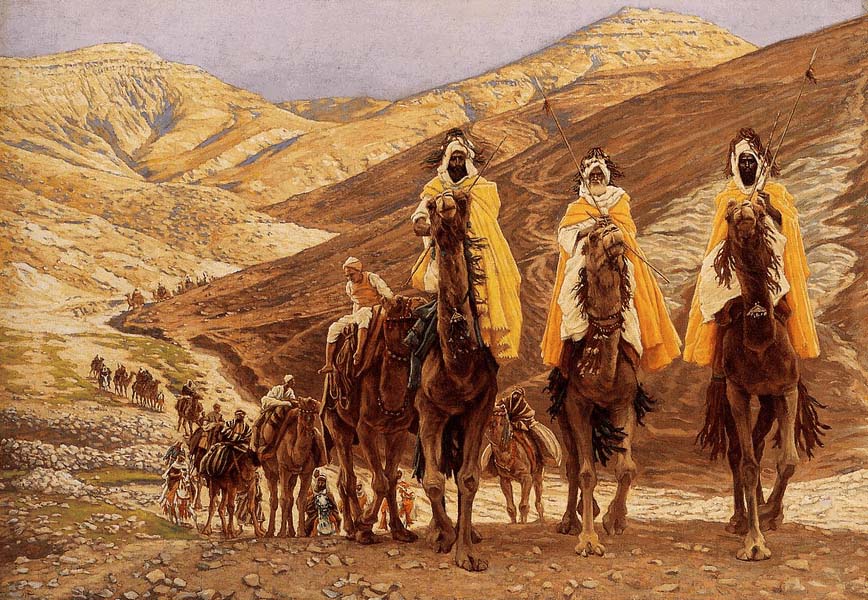This December was the first time I have had to turn off the news because it was too depressing. Terrible events happened that changed the lives of so many. Christmas should be a season of celebration, but, even though the dust had settled, it was still marked with a cloud of sadness.
When evil events occur, the question that is undoubtedly asked is, "Where is God in all this? How can a good God allow this evil?" This is the question that is always posed at Christians in an attempt to 'stump the chump.' It is my belief that as Christians we are the only ones that actually have an answer to this question. The fact is, tragedies like the recent shooting at Sandy Hook Elementary, do not cause me to lose faith in God, but in humanity.
Consider this, in a world that embraces Postmodern thinking truth becomes subjective for each individual. This lack of a solid foundation of truth leads to moral relativity, meaning that the lines of good and evil are blurred. Of course, everyone in their right mind would admit that the killing of children is pure evil. However, the blame of this evil is still shifted away from the individual and excused with things like poor parenting, mental illness, or lack of gun restrictions. According to the Bible, the problem of evil does not reside with God, but with each individual man. "Then the LORD saw that the wickedness of man was great on the earth, and that every intent of the thoughts of his heart was only evil continually...and He was grieved in His heart" (Genesis 6:5,6b). Evil is man's rejection of God's way, choosing, instead, to go his own way. Romans 3:10-12 "As it is written, "There is none righteous, not even one; there is none who understands, there is none who seek after God; all have turned aside, together they have become useless; there is none who does good, there is not even one." This is a quotation from both Psalm 14:1-3 and 53:1-3 "The fool has said in his heart, "There is no God," They are corrupt, and have committed abominable injustice; there is no one who does good. God has looked down from heaven upon the sons of men to see if there is anyone who understands, who seeks after God. Every one of them has turned aside together they have become corrupt; there is no one who does good not even one." So, contrary to popular belief, man is NOT 'basically good' and evil resides on both the corporate and individual level.
Another destructive worldview stems from an evolutionary perspective. Evolution embraces the idea of survival of the fittest, thus, bringing about improvement over time. Death becomes progress, and, when this view is taken to its extreme, there is no difference between the death of a child and the death of an insect because death is an advancement toward a stronger more purified species. However, the Bible speaks of death as the result of man's choosing evil. Romans 5:12, 19a "Therefore, just as through one man sin entered into the world and death through sin, and so death spread to all men, because all sinned...through the one man's disobedience the many were made sinners." Death is man's separation from God as a result of his rejection of God.
But God, being good, did not abandon us in our sinful state. He sent His child, Jesus Christ, to be born on earth, live a sinless life, then die (suffering the consequences of sin) on our behalf. Romans 5 continues, "For as through one man's disobedience the many were made sinners, even so through the obedience of the One the many will be made righteous...so that, as sin reigned in death, even so grace would reign through righteousness to eternal life through Jesus Christ our Lord" (verses 19 and 21).
When we take God out of the picture we are left to destruction, despair, and hopelessness. The only peace is Christ Himself. Micah 5, the passage that speaks of the promised Messiah being born in Bethlehem, which is a direct prophecy of Jesus' birth, concludes the prophecy with the words in verse 5, "This One will be our peace." This is why He is called the Prince of Peace and heralded at His birth was the message of "peace on earth!" But notice what the angels proclaimed, "Glory to God in the highest, and on earth peace among men with whom He is pleased" (Luke 2:14). God is not to be blamed for the evil, He receives the honor and glory for giving the gift of hope and peace. Also, this peace is not the sudden end of war, world hunger, and sadness, it is the gift of peace through Jesus Christ. It is peace with God to those who receive His gift. It is hope so man is no longer left in His sin, but made righteous through the blood of Christ. It is a glorious future so that death is no longer despair and separation from God, but entrance into eternal life with God.
So I leave you with the words of the Christmas carol I have found particularly meaningful this season:1

I heard the bells on Christmas day
Their old familiar carols play,
And wild and sweet their words repeat
Of peace on earth, good will to men.
And in despair I bowed my head
"There is no peace on earth," I said,
"For hate is strong and mocks the song
Of peace on earth, good will to men."
Then pealed the bells more loud and deep:
"God is not dead, nor doth He sleep;
The wrong shall fail, the right prevail
With peace on earth, good will toward men."
1 "I Heard the Bells on Christmas Day" words by Henry W. Longfellow, 1864 (On an historical note, this hymn was written during the American Civil War).
2 For one of the most beautiful renditions of this song I recommend Casting Crowns
But God, being good, did not abandon us in our sinful state. He sent His child, Jesus Christ, to be born on earth, live a sinless life, then die (suffering the consequences of sin) on our behalf. Romans 5 continues, "For as through one man's disobedience the many were made sinners, even so through the obedience of the One the many will be made righteous...so that, as sin reigned in death, even so grace would reign through righteousness to eternal life through Jesus Christ our Lord" (verses 19 and 21).
When we take God out of the picture we are left to destruction, despair, and hopelessness. The only peace is Christ Himself. Micah 5, the passage that speaks of the promised Messiah being born in Bethlehem, which is a direct prophecy of Jesus' birth, concludes the prophecy with the words in verse 5, "This One will be our peace." This is why He is called the Prince of Peace and heralded at His birth was the message of "peace on earth!" But notice what the angels proclaimed, "Glory to God in the highest, and on earth peace among men with whom He is pleased" (Luke 2:14). God is not to be blamed for the evil, He receives the honor and glory for giving the gift of hope and peace. Also, this peace is not the sudden end of war, world hunger, and sadness, it is the gift of peace through Jesus Christ. It is peace with God to those who receive His gift. It is hope so man is no longer left in His sin, but made righteous through the blood of Christ. It is a glorious future so that death is no longer despair and separation from God, but entrance into eternal life with God.
So I leave you with the words of the Christmas carol I have found particularly meaningful this season:1

I heard the bells on Christmas day
Their old familiar carols play,
And wild and sweet their words repeat
Of peace on earth, good will to men.
And in despair I bowed my head
"There is no peace on earth," I said,
"For hate is strong and mocks the song
Of peace on earth, good will to men."
Then pealed the bells more loud and deep:
"God is not dead, nor doth He sleep;
The wrong shall fail, the right prevail
With peace on earth, good will toward men."
1 "I Heard the Bells on Christmas Day" words by Henry W. Longfellow, 1864 (On an historical note, this hymn was written during the American Civil War).
2 For one of the most beautiful renditions of this song I recommend Casting Crowns
3 Image taken from sharedhope.org
